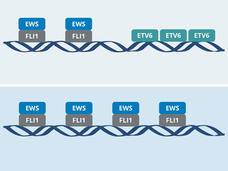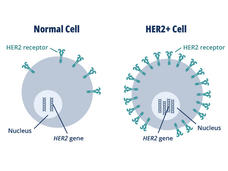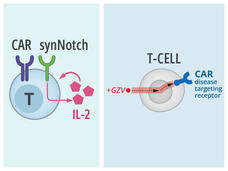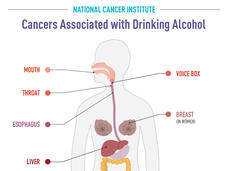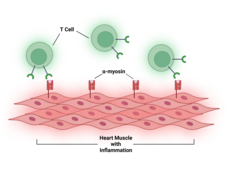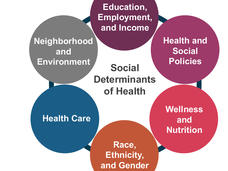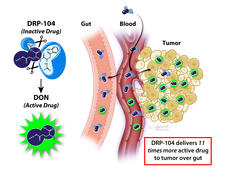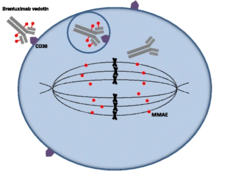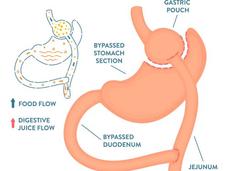Cancer Currents: An NCI Cancer Research Blog
A blog featuring news and research updates from the National Cancer Institute.
-
ETV6 Protein Could Be an Important Target for Ewing Sarcoma Treatment
The protein ETV6 appears to promote tumor growth by affecting the behavior of the EWS-FLI1 fusion protein that drives most Ewing sarcomas. The research groups that made the discovery hope it leads to a targeted therapy for the aggressive childhood cancer.
-
Immunotherapy and… Nothing Else? Studies Test Potential Paradigm Shift in Cancer Treatment
For some people with cancer, is 6 months of immunotherapy the only treatment they might ever need? Or 4 weeks of immunotherapy followed by minor surgery? Results from several small clinical trials suggest these scenarios may be bona fide possibilities.
-
Telehealth Can Save People with Cancer Time, Travel, and Money
Since the start of the COVID-19 pandemic, many people with cancer have had telehealth visits with their doctors. According to an analysis of nearly 25,500 telemedicine visits to the Moffitt Cancer Center by more than 11,600 adults with cancer, the use of telehealth saved people with cancer time, travel, and money.
-
Study Finds Disparities in Access to Opioids for Cancer Pain at End of Life
Black and Hispanic patients nearing the end of life are less likely than White patients to get opioids needed to control their cancer pain, a new study shows. Black patients were also more likely than White patients to undergo urine tests that screen for drugs.
-
Tucatinib and Trastuzumab Combination Approved for Advanced Colorectal Cancer
FDA approved tucatinib (Tukysa) with trastuzumab (Herceptin) to treat HER2-positive advanced colorectal cancer. The approval was based on the MOUNTAINEER trial, in which nearly 40% of participants’ tumors shrank after receiving the drug combination.
-
Doing More—Together—to End Cancer as We Know It
NCI Director Dr. Monica Bertagnolli reflects on the tremendous progress made in cancer research over the past 3 decades, important opportunities that lie ahead, and the need for coordinated, all-of-society collaboration to end cancer as we know it for everyone.
-
Studies Test CAR T-Cell Therapies Designed to Overcome Key Limitations
Two research teams have developed ways of overcoming barriers that have limited the effectiveness of CAR T-cell therapies, including engineering ways to potentially make them effective against solid tumors like pancreatic cancer and melanoma.
-
Help Desk for Oncologists Treating People with a Rare Leukemia Pays Big Dividends
An NCI-funded clinical trial has shown that treatment-related early deaths in people with a rare leukemia can be dramatically reduced. How did they do it? In part, by establishing a help desk staffed by experts in treating APL.
-
Zanubrutinib’s Approval Improves Targeted Treatment for CLL
FDA has approved zanubrutinib (Brukinsa) for chronic lymphocytic leukemia (CLL) or small lymphocytic lymphoma (SLL) based on results from two clinical trials. In both trials, the drug, which blocks a protein called BTK, was more effective and caused fewer side effects than other treatments.
-
Trial Suggests Expanded Role for Blinatumomab in Treating ALL
The immunotherapy drug blinatumomab (Blincyto) extends life for people with acute lymphoblastic leukemia who are in remission, even those with no signs of disease after initial treatment, a trial has found.
-
Pausing Long-Term Breast Cancer Therapy to Become Pregnant Appears to Be Safe
Many young women who are diagnosed with early-stage breast cancer want to become pregnant in the future. New research suggests that these women may be able to pause their hormone therapy for up to 2 years as they try to get pregnant without raising the risk of a recurrence in the short term.
-
Study Probes Awareness of Alcohol’s Link to Cancer
A study confirmed that most US adults aren’t aware of the link between alcohol consumption and cancer. Even among those surveyed who were aware, some believed risk varies by the type of alcohol.
-
In Mouse Study, KRAS-Targeted Drug Shows Potential against Pancreatic Cancer
An experimental drug, MRTX1133, shrank tumors or halted their growth in several mouse models of human pancreatic cancer with KRAS G12D mutations, a new study shows. The models included one that is genetically engineered to closely mimic the human disease.
-
A Safer, Better Treatment Option for Some Younger Women with Breast Cancer
For younger women with advanced breast cancer, the combination of ribociclib (Kisqali) and hormone therapy was much better at shrinking metastatic tumors than standard chemotherapy treatments, results from an NCI-funded clinical trial show.
-
Study Identifies a Potential Cause of Immunotherapy’s Heart-Related Side Effects
In people with cancer treated with immune checkpoint inhibitors, a rare, but often fatal, side effect is inflammation in the heart, called myocarditis. Researchers have now identified a potential chief cause of this problem: T cells attacking a protein in heart cells called α-myosin.
-
Reducing the Cancer Burden: Future Directions for NCI's Cancer Control Research
To mark her first year at NCI, Dr. Katrina Goddard lays out her research priorities for the Division of Cancer Control and Population Sciences and outlines key opportunities for reducing the burden of cancer. These future directions and priorities are outlined in the division’s 2022 Overview and Highlights report.
-
Can Chemotherapy Drugs Be Designed to Avoid Side Effects?
Researchers have modified a chemo drug, once abandoned because it caused serious gut side effects, so that it is only triggered in tumors but not normal tissues. After promising results in mice, the drug, DRP-104, is now being tested in a clinical trial.
-
Brentuximab Approved for High-Risk Hodgkin Lymphoma in Children and Adolescents
Based on an NCI-sponsored clinical trial conducted by the Children’s Oncology Group, FDA has approved the drug brentuximab vedotin (Adcetris) in combination with chemotherapy for some children and adolescents with Hodgkin lymphoma.
-
Drug Combination Shows Promise for Rhabdomyosarcoma, but Can It Get to Clinical Trials?
An NCI study in mice has identified a drug combination that may help treat children with rhabdomyosarcoma. But one of the drugs, ganitumab, is no longer being made. Based on the study's promising results, the NCI researchers who led the study want to test the combination in humans.
-
Bariatric Surgery May Reduce the Risk of Some Common Cancers
A new study suggests that people with obesity who had bariatric surgery had a much lower risk of five common cancers that aren’t related to hormone levels, including lung, colorectal, and esophageal cancer.

